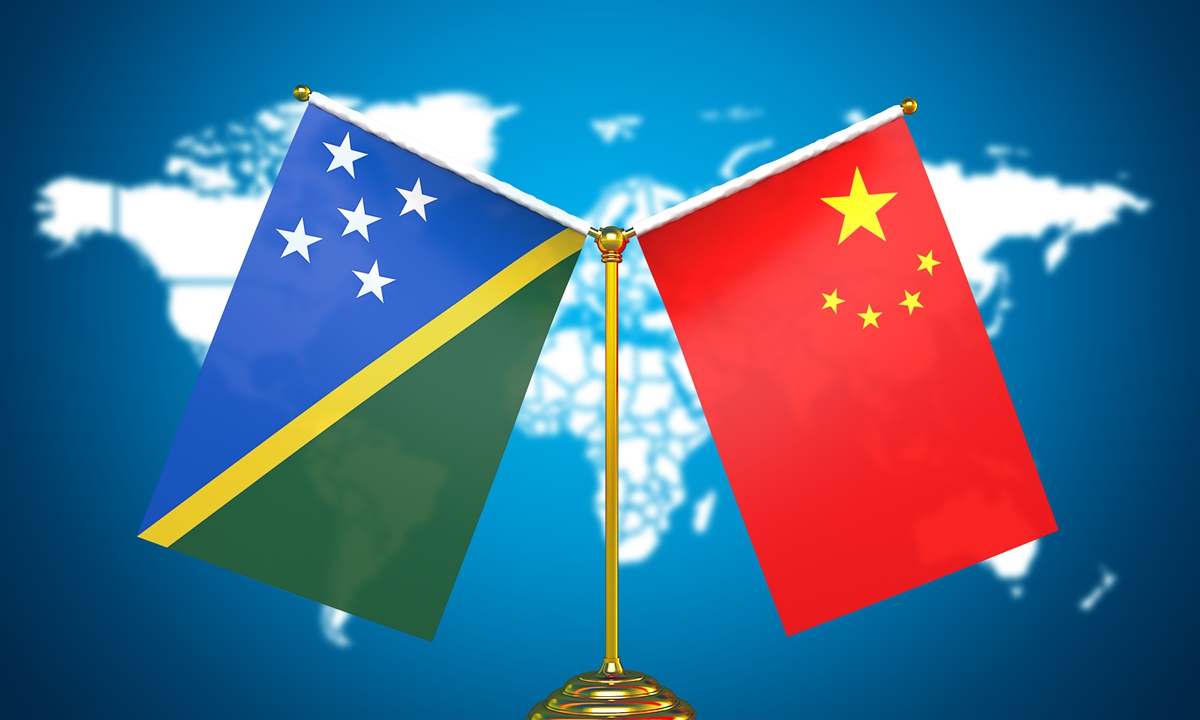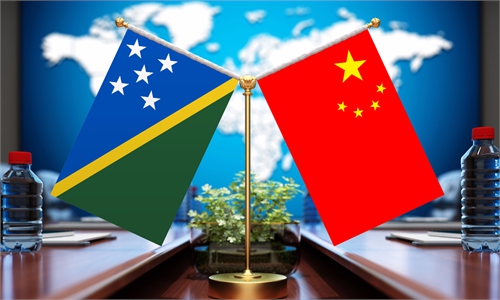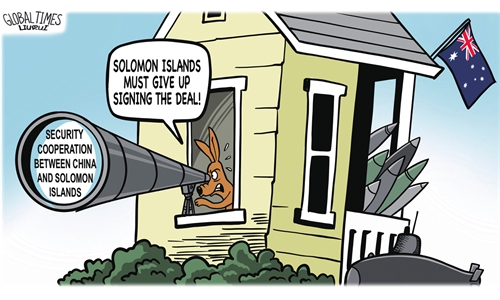Opinion: Australia risks its regional standing by sabotaging China-Solomon Islands deal

Solomon Islands Photo: CFP
Solomon Islands Prime Minister Manasseh Sogavare on Wednesday dismissed recent criticism from Australian officials over a new maritime investment deal with China, saying in a statement that "there is nothing sinister nor trivial about the Blue Economy Memorandum of Understanding."
Australian media reports had claimed that Australian Prime Minister Scott Morrison was very concerned about the draft investment agreement, which covers "port wharves, submarine optimal cable construction, shipbuilding and ship repair and ocean transportation", as well as "exploration and development of offshore oil, gas and mineral resources."
The Chinese Embassy in the Solomon Islands on Wednesday also issued a statement, saying China has market, capital and strength in technology, and the Solomon Islands is rich in agriculture, forestry, fishery and touristic resources. The economies of the two countries are highly complementary and have great potential for cooperation.
The mutually beneficial cooperation between China and the Solomon Islands has become the latest target for Australian politicians to hype the "China threat thoery" ahead of the upcoming federal election to cater to some of the country's hostile sentiment toward China. According to a recent survey by the Australia-China Relations Institute at the University of Technology in Sydney, 78 percent of the respondents expressed mistrust of China.
The details of the Blue Economy deal remain unclear, but it is clear that Australia's abnormal anxiety about China's normal cooperation with the Solomon Islands and other South Pacific island nations has revealed its colonial mentality toward the region it deems to be its "backyard." That explains why South Pacific island nations' cooperation with other countries, especially China, has recently become a focus of attention among Canberra's politicians.
But it should be noted that the Solomon Islands and other South Pacific island nations are facing pressing development challenges, such as climate change and economic recovery in the post-pandemic era, which should by no means be overlooked. As an independent sovereign state, the Solomon Islands has its own right to decide what it needs and what kind of cooperation it wants to carry out with any other country. Even though South Pacific island countries do have a close proximity with Australia and have received Western aid in the past, it doesn't mean that these countries must sacrifice their development for the selfish geopolitical calculations of Australia and its Western allies.
Since the establishment of diplomatic relations between China and the Solomon Islands, the two countries have rapidly promoted mutually beneficial cooperation through means like project assistance, investment and trade under the Belt and Road Initiative framework. The development actually reflects South Pacific island countries' practical needs of economic and social development that can be met through economic cooperation with countries like China.
From another perspective, if it weren't for Australia's ideological bias toward China, China and Australia could have worked together and strengthened their cooperation in promoting economic development in the Solomon Islands and the broader South Pacific island region.
The region is in the initial stages of its development, offering various kinds of cooperation opportunities for China with strong infrastructure capability and Australia with geographical advantage. Seizing these opportunities to work together to help these small island countries develop will benefit the China-Australia economic and trade relationship, enhance mutual trust, and promote regional development.
However, it is regrettable to see Australia waste such a great opportunity by looking at China's economic cooperation with South Pacific island countries with irrational hostility. Canberra needs to stop making ridiculous accusations about or even seeking to undercut normal and mutually beneficial cooperation between these nations and China, or it will be rejected and discarded by regional countries as an unwelcome troublemaker.
The author is a reporter with the Global Times. bizopinion@globaltimes.com.cn




